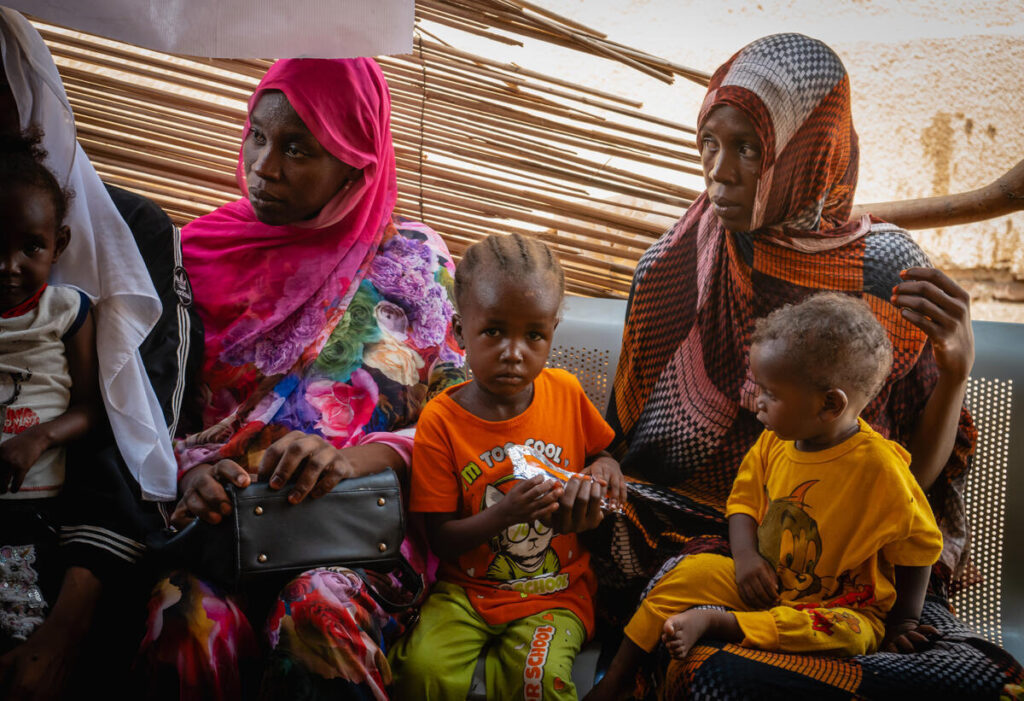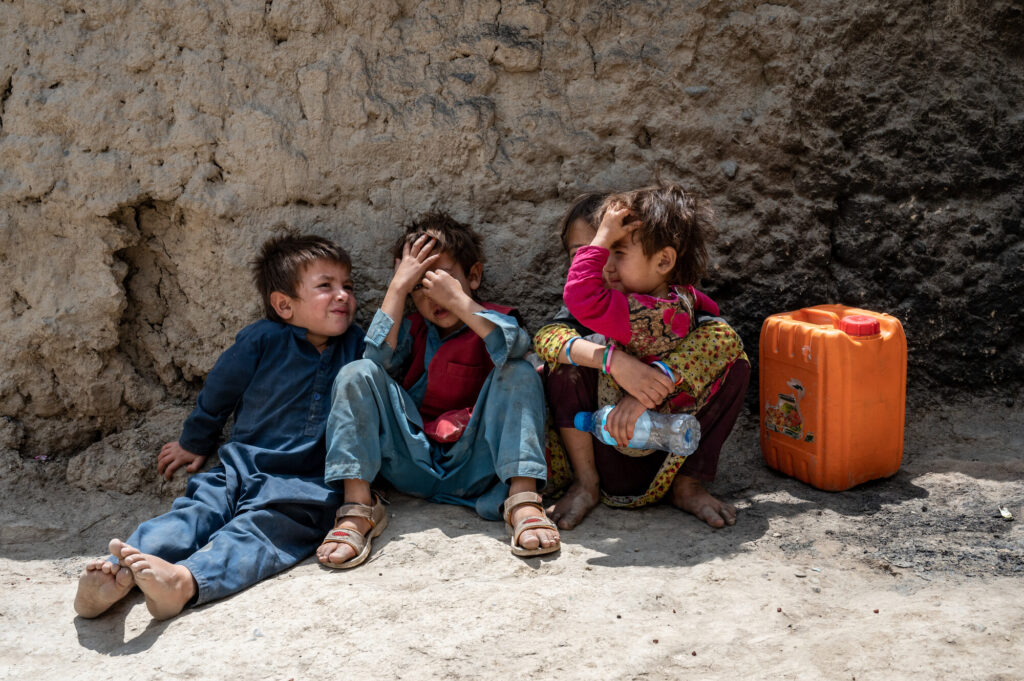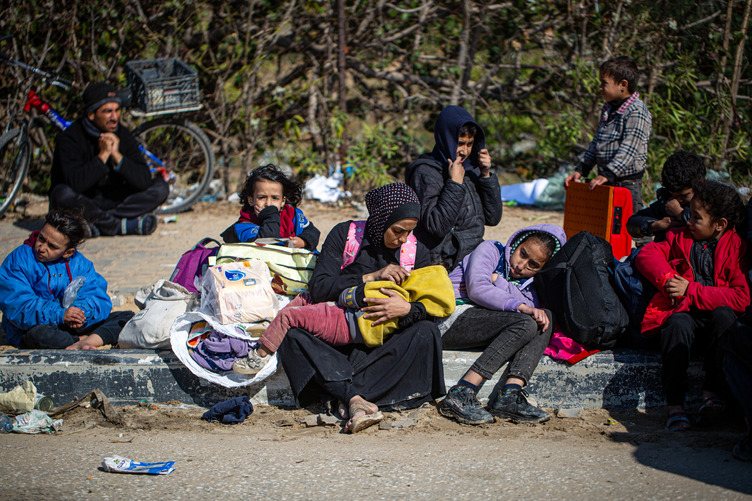Acute food insecurity is set to increase in magnitude and severity in 22 countries and territories
New UN report warns of conflict-induced famine and catastrophic hunger in five major hotspots alongside the looming La Nina climate threat in others. Following is a joint FAO-WFP news release.
Rome, October 31, 2024 – Acute food insecurity is set to increase in both magnitude and severity across 22 countries and territories, according to a new United Nations report. The report warns that the spread of conflict, particularly in the Middle East – coupled with climate and economic stressors – is pushing millions of people to the brink. The report spotlights the regional fallout from the crisis in Gaza which has seen Lebanon engulfed in conflict and warns that the La Niña weather pattern could impact climates through March 2025, threatening fragile food systems in already vulnerable regions.
The report draws attention to famine in the Zamzam camp in North Darfur and famine risk in other areas of Sudan, the enduring risk of famine in Palestine (Gaza Strip) and the catastrophic levels of acute food insecurity in Haiti, Mali and South Sudan. It warns that without immediate humanitarian action and concerted efforts to overcome severe access constraints and resolve ongoing conflicts, further starvation and death are likely.
The report – ‘Hunger Hotspots – FAO-WFP early warnings on acute food insecurity’ – issued today by the Food and Agriculture Organization of the United Nations (FAO) and the United Nations World Food Programme (WFP) calls for urgent humanitarian action to save lives and livelihoods and prevent starvation and death in hotspots where acute hunger is at high risk of worsening between November 2024 and May 2025.
In total, 22 countries/territories are classified as “hunger hotspots”, where high levels of acute food insecurity are expected to further deteriorate due to the combination of conflict, economic instability, and climate shocks during the outlook period. Without immediate intervention, including increased funding for food and livelihoods assistance, hundreds of thousands more people are expected to face starvation in the coming months.
“The situation in the five hunger hotspots of highest concern is catastrophic. People are experiencing an extreme lack of food and face unprecedented enduring starvation fuelled by escalating conflicts, climate crises and economic shocks. If we are to save lives and prevent acute hunger and malnutrition, we urgently need a humanitarian ceasefire, and to restore access to and availability of highly nutritious food, including reactivating local food production. But this alone is not enough; we need longer-term stability and food security. Peace is a pre-requisite for food security. Without peace and stability, farmers cannot grow food, harvest or sustain their livelihoods. Access to nutritious food is not just a basic need – it is a fundamental human right,” said QU Dongyu, FAO Director-General.
“Worldwide, conflicts are escalating, economic instability is rising, and climate disasters are becoming the new norm. With more effective political and financial support, humanitarians can and will continue to implement proven and scalable solutions to address hunger and reduce needs over the long term,” said Cindy McCain, WFP Executive Director.
“It’s time for world leaders to step up and work with us to reach the millions of people at risk of starvation – delivering diplomatic solutions to conflicts, using their influence to enable humanitarians to work safely, and mobilizing the resources and partnerships needed to halt global hunger in its tracks,” Director McCain added.
The effects of the La Niña weather pattern, anticipated to impact global climates from November 2024 through March 2025, are expected to further exacerbate some of the food crises. While some areas may benefit from improved agricultural conditions, La Niña is likely to cause devastating floods in countries such as Nigeria and South Sudan, while potentially contributing to dry conditions in Somalia, Kenya, and Ethiopian. These extreme weather events threaten already fragile food systems, putting millions at risk of hunger.
The report stresses that early, targeted action is essential to prevent the further deterioration of the crisis and avert mass hunger-related mortality. FAO and WFP are urging world leaders to prioritize conflict resolution, economic support, and climate adaptation measures to protect the most vulnerable populations from the brink of famine.
Key Findings
According to the report, Palestine, the Sudan, South Sudan, Haiti and Mali remain at the highest alert level and require the most urgent attention. Conflict is the primary driver of hunger in all these areas. All hotspots of the highest concern have communities already facing or at risk of famine or facing catastrophic conditions of acute food insecurity.
Chad, Lebanon, Myanmar, Mozambique, Nigeria, the Syrian Arab Republic and Yemen are hotspots of very high concern, with a large number of people facing critical acute food insecurity, coupled with worsening drivers that are expected to further intensify life-threatening conditions in the coming months.
Since the previous edition of the Hunger Hotspots report (June 2024), Kenya, Lesotho, Namibia and Niger have joined the list of hunger hotspots, alongside Burkina Faso, Ethiopia, Malawi, Somalia, Zambia and Zimbabwe, where acute food insecurity is likely to deteriorate further during the outlook period.
The Hunger Hotspots report identifies areas where acute food insecurity is likely increase during the outlook period. The hotspots are determined through forward-looking analysis and selected through a consensus-based process involving FAO and WFP field and technical teams, alongside analysts specialized in conflict, economic risks and natural hazards.
The report is part of a US and EU funded suite of analytical products produced under the Global Network Against Food Crises, to enhance and coordinate the generation and sharing of evidence-based information and analysis for preventing and addressing food crises.
This series also includes the recently published 2024 Global Report on Food Crises, which retroactively looks at the levels of acute food insecurity in 2023, in complement to the Hunger Hotspots which is a forward-looking early warning analysis that provides decision makers with information for planning and resource allocation.
The digital version of the report is also available at this link
The Food and Agriculture Organization of the United Nations (FAO) is a specialized agency that leads international efforts to defeat hunger. It aims at transforming agrifood systems, making them more efficient, inclusive, resilient and sustainable for better production, better nutrition, a better environment and a better life, leaving no-one behind. FAO’s goal is to achieve food security for all and make sure that people have regular access to enough high-quality food to lead active, healthy lives.
The United Nations World Food Programme is the world’s largest humanitarian organization saving lives in emergencies and using food assistance to build a pathway to peace, stability and prosperity for people recovering from conflict, disasters and the impact of climate change.
For more information please contact:
James Belgrave, WFP/ Rome, James.Belgrave@wfp.org, tel. +39 366 5294297
WFP Media Desk, WFP/ Rome, WFP.Media@wfp.org
Irina Utkina, FAO/ Rome, irina.utkina@fao.org, tel. +39657052542
United Nations journalists – United Nations journalists – United Nations journalists
United Nations News – United Nations News – UN Correspondents Association – UNCA Awards





